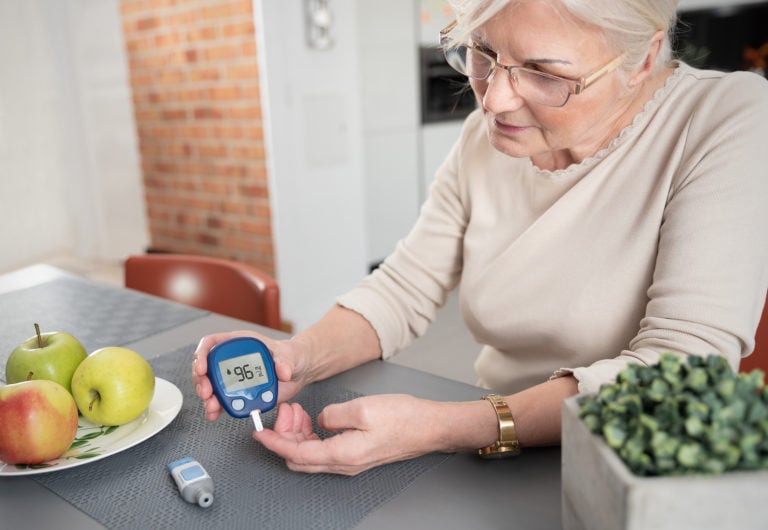Blurry vision, dark spots, or sudden vision changes can be warning signs of more than just fatigue or aging — they may be signs of diabetic eye disease. If you’re managing diabetes, you might wonder: How does diabetes affect the eyes?
High blood sugar can quietly damage delicate structures over time, leading to serious, sometimes irreversible vision problems. At Florida Eye Specialists, we’re here to help patients understand how diabetes impacts their vision, identify early warning signs, and provide advanced treatment options to protect sight and maintain long-term eye health.
How Does Diabetes Affect the Eyes?
Diabetes can impact nearly every part of the eye, from the retina to the optic nerve. Over time, high blood sugar damages delicate eye tissues and blood vessels, increasing the risk for several vision-threatening conditions, including:
Diabetic Retinopathy
Diabetic retinopathy is a common complication of diabetes and one of the leading causes of vision loss in adults. It occurs when high blood sugar damages the blood vessels in the retina, the light-sensitive tissue at the back of the eye.
The early stages often have no noticeable symptoms, but as the condition progresses, you may start to see:
- Small, dark floaters or spots
- Blurry or distorted vision
- Trouble seeing colors accurately
- Vision loss or blind spots
Without treatment, diabetic retinopathy can lead to permanent vision loss. Treatments may include laser procedures, anti-VEGF injections, or surgery. Regular eye exams are key to catching this condition early and protecting your sight.
Cataracts
Cataracts cause the normally clear lens of the eye to become cloudy, making it difficult to see clearly. While cataracts can affect anyone as they age, people with diabetes are more likely to develop them, and at a younger age.
According to the World Journal of Diabetes, cataracts are three to four times more common in diabetic patients under 65. Symptoms may include:
- Cloudy or blurred vision
- Sensitivity to light
- Difficulty seeing at night
- Seeing halos around lights
Cataract surgery is a safe and effective treatment option. During the procedure, the cloudy lens is removed and replaced with a clear artificial one to restore vision.
Glaucoma
Glaucoma is a group of eye diseases that damage the optic nerve, often due to increased pressure in the eye. Having diabetes doubles your risk of developing glaucoma, which can lead to irreversible vision loss if not treated early.
Many people with glaucoma don’t notice symptoms until the disease is advanced. When signs do appear, they may include:
- Blind spots in your peripheral or central vision
- Tunnel vision
- Eye pain or pressure (in some types of glaucoma)
Early detection is vital. Our glaucoma specialists offer advanced testing and treatment options, including medication, laser therapy, and surgery to reduce eye pressure and preserve vision.
Protect Your Vision with Florida Eye Specialists
If you have diabetes, it’s important to stay ahead of potential vision problems with regular comprehensive eye exams. At Florida Eye Specialists, our experienced team includes some of the region’s top cataract surgeons and glaucoma specialists.
We’re here to provide the highest level of care and help you protect your sight. Schedule an appointment with Florida Eye Specialists today to stay proactive about your eye health.
